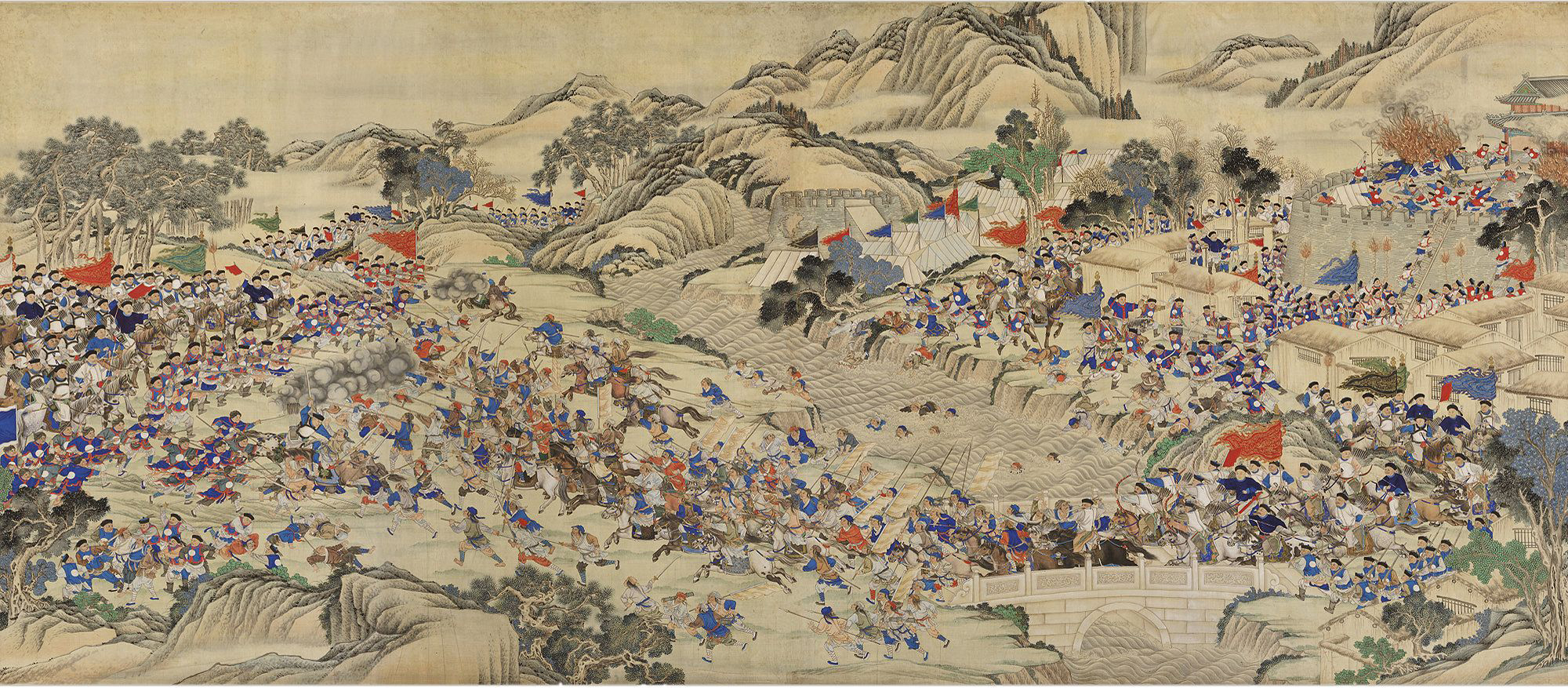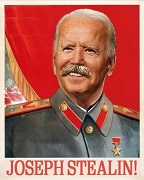|
Welcome to the C-SPAM modern history thread! We'd merged the ancient history thread with the general history thread a while ago, but have found that it's hard to mesh talk of Stalin with talk of Julius Caesar and his proclivity toward sucking off his straight centurions. I figured it would be best to separate the two topics again for the benefit of everyone. "Modern" history can mean a lot of different things to different people. Early modern history basically begins with Columbus discovering America and this definition imo is necessarily Euro-centric because of how many world-changing developments were taking place as a result of colonization. I'd like to leave that period to the other other thread, which I will rename as pre-modern history. This thread should be about modern history roughly beginning at the end of the Napoleonic period, that is, 1815. After this period we get a lot of philosophical and technological developments that directly inform the 20th century and thus our contemporary world.
|
|
|
|

|
| # ? Apr 27, 2024 14:26 |
|
Wanted to start this thread off with something interesting. So the Taiping Rebellion was this massive civil war that happened in China from 1850 to 1864, around the same time as the US Civil War but much, much bigger. Around 20–30 million people died, which is over 10 times as many as in the US. To sum up the origins, the Qing dynasty of foreign Manchu conquerors had ruled over the Han people and other ethnicities of China since 1644. Among the typical degradations, they made the Chinese wear their hair in a queue with the front shaved (rather than the traditional Chinese long hair with topknot) under penalty of beheading:  In the decades preceding the rebellion there were a lot of disasters in China, both natural and political, especially the hugely unfair concessions and reparations made to Western countries after losing the First Opium War in 1842. Eventually a young man named Hong Xiuquan became the leader of a group of bandits in southern China, which grew into a huge anti-Manchu rebellion where territory was taken and maintained, and full-scale war existed between the two groups and entire cities were massacred by both sides. Battles were extremely bloody affairs, with huge armies of muskets, spears, and swords clashing into each other.  What's so interesting about this rebellion, you ask-- well, Hong Xiuquan declared himself to be the younger brother of Jesus, that is, Jesus Christ of Christian fame. Hong did not know a whole lot about the Bible, nor did his followers, but they knew enough to establish what would be known as the Taiping Heavenly Kingdom, of which Hong was the king by divine right. This was of interest to Westerners. As of 1850 the openly anti-foreign Xianfeng Emperor ruled in Beijing, and resistance to European-based "free trade" was at an all-time high. Suddenly they're hearing that nearly half of China is ruled by a Christian? This could be an opportunity...
|
|
|
|
I'd like to share the following excerpt from "The European Economy Between the Wars", by C.H. Feinstein, P. Temin, and G. Toniolo. This chapter of the book deals with the findings of a group of sociologists that studied an industrial village in Vienna in 1931-2, and is a direct account of what life was like during the Great Depression. ___ Marienthal was an Austrian village with about 500 families in 1931. It could be reached from Vienna by a half-hour train ride to a neighbouring village and then another half-hour walk over the flat countryside. A cotton mill had furnished the chief opportunity for employment in the village since its founding almost a century ago. The mill had progressed from cotton to rayon after the First World War. Despite industrial strife and a slowdown in demand in the mid-1920s, employment was at its peak in early 1929. By February 1930, however, production had ceased in the mill. The mill owners must have expected business not to pick up, for they started to demolish the mill almost immediately. Workers in Marienthal looked ot in the early 1930s over the rubble of their former place of employment. Unemployment relief was governed by a 1920 law. Workers were entitled to relief if they had worked at least 20 weeks in the previous year and had no other income. Aliens were not eligible. The amount of relief varied with the worker's work history, wage, and family situation. It lasted for 20 to 30 weeks. A worker's claim to relief was voided if any work at all was undertaken. Workers lost their benefits for activites as limited as cutting down trees in return for firewood, delivering milk in return for some of the milk, and playing the harmonica in return for a little money. The result was an idleness supplemented by minimally illegal activity, such as stealing coal from the railway or potatoes from farmers. Emergency assistance was available after unemployment relief ended. It was only slightly less generous and lasted for an additional 20 to 50 weeks. After that, assistance ceased. By the winter of 1931-2, therefore, most families were still on some kind of relief, but they were approaching the end. Fewer than 100 families in the village had income from work in Marienthal, neighbouring villages, or Vienna. The other 400 subsisted on relief of some sort, with the exception of nine families with no relief or assistance and eighteen with railway pensions. Four-fifths of the families had allotments in the common land owned by the village authorities and the factory. Each allotment consisted of five plots, about two by six meters each, which were used to grow vegetables, varying with the season. Many families grew flowers as well, choosing cheerfulness over sustenance. About thirty families also bred rabbits. Despite the home-grown vegetables, diets were very monotonous. Meat was eaten only once a week by half the families, on Sunday. Very few families had meat more than twice a week, and what they had was usually horsemeat. This was an 'inferior good' in the language of economists; consumption had risen as income fell. Starches were the basis of most diets, and the flour used had changed from wheat to the cheaper rye. Sugar was replaced by cheaper saccharine. While almost all families had three meals a day, the evening meal typically was either coffee and bread or leftovers from the noon meal. This poor diet consumed almost all the incomes of the families in the village. Families with children also bought milk; most families bought coal for heat. But there was little money left over for clothes nd other expenses. Shoes in particular were a problem. Families typically could not afford to replace shoes that had worn out, and so they were patched and patched again. Some families even restricted activities of their children to save the wear and tear on their shoes. While comparisons across time and space are difficult, the income of the unemployed Marienthal workers appears similar to the Italian worker of 1890 mentioned at the beginning of Chapter l. In cases, the cost of food—even with limited meat and variety—consumed almost all the budget. Little was left over for recreation or for capital expenses. While spending collapsed back into food, and food into bread and coffee, movement collapsed back into the village. Trips to Vienna had been frequent during the 1920s, to go to the theatre, to do Christmas shopping, or to attend school. With unemployment, the money to undertake these journeys vanished. Even the train fare became a burden, and people relied more heavily on their bicycles. The isolation of rural villages, which had been broken down by the railway and prosperity after the First World War, reappeared in the Great Depression. The isolation was deepend by a decline in newspaper subscritions. Subscriptions to the Social Democratic paper, which contained intellectual discussions as well as news, dropped by 60 per cent from 1927 to 1930. This was not entirely a matter of money, since the paper had a cheaper subscription rate for unemployed workers. Subscriptions to another paper with more entertainment value fell to only 30 per cent. Detachment was hardly complete, however. Political organizations continued, albeit with reduced passion. Votes in the 1932 elections were almost identical to those in the 1930 election. And the National Socialists started organizing in the village. Politics, like other leisure activities, should have benefited from the increased availability of time. But this advantage was heavily outweighed by an increase of apathy that reduced all forms of activity. As noted, people stopped reading newspapers. It follows that they must have stopped discussing newspaper stories and columns with their friends and neighbours. Library usage also declined. Both the number of borrowers and the books checked out by each borrower fell. Card-playing became a popular way to pass the time. One striking aspect of this lethargy was the fate of a park that had formerly belonged to the village manor and had become a focal point village for village life. In more prosperous times, villagers sat on its benches and walked on its paths on Sundays. The grass and shrubs were neatly tended. Despite the increase in leisure, the park fell rapidly into disuse as unemployment rose. The paths became overgrown: the lawns deteriorated; the park became a wilderness. Villagers became suspicious of each other as they reduced their activities. There always had been denunciations of peoople seen or suspected of doing illegal activities, such as working while receiving relief. The number of denunciations rose dramatically in 1930 and 1931, but the number which stood up under investigation did not. The observing sociologists classified most families as resigned to their condition. The families were hanging on, preserving as much of their life and family as they could on their meagre budgets. All their activity was dedicated to getting by; no thought was given to the future. Some families still planned as before, but others collapsed entirely in mental and physical neglect and conflict. Almost three out of four families in the village were classified as resigned The unemployed men were exceedingly idle. They passed their time doing essentially nothing. They could not even recall much of any activity during the day when asked. They sat around the house, went for walks -walking slowly—or played and chess at the Workmen's Club. In a compilation of time cards, over half of the men's time was idle or unaccounted for. Another quarter was occupied in minor household tasks like shopping and gettin water. Less than a quarter of the time was used in major household work, looking after children, or handicrafts. Women were far more active. Although no longer working, they had the responsibility of keeping the household running and caring for the children. They spent time cooking. mending clothes to make them last longer, and managing their budgets. The men contributed less to the running of the household than before—sometimes not even turning up on time for meals—and the women had the full responsibility. Even though the women often had had a hard time completing their housework after working they uniformly would preferred being back at work. One revealing key to the meaning of time for unemployed workers was their bedtime. While working, people generally went to bed around 11 o'clock. They came home from work, ate, put the children to bed, went to a political meeting or had some other activity, talked a bit, and then went to bed. In the early 1930s, the women still went to bed late in the evening, taking the time to complete their household tasks. But the men went to bed before 9 o'clock. There simply was no reason to stay awake; sleep expanded to take up the time.
|
|
|
|
gradenko_2000 posted:I'd like to share the following excerpt from "The European Economy Between the Wars", by C.H. Feinstein, P. Temin, and G. Toniolo. this was really good and scary ty
|
|
|
|
Flavius Aetass posted:What's so interesting about this rebellion, you ask-- well, Hong Xiuquan declared himself to be the younger brother of Jesus, that is, Jesus Christ of Christian fame. Hong did not know a whole lot about the Bible, nor did his followers, but they knew enough to establish what would be known as the Taiping Heavenly Kingdom, of which Hong was the king by divine right. It sounds like this is the opening of a story, if it is just ignore me But somebody started a series of good effortposts over here a few years ago https://forums.somethingawful.com/showthread.php?threadid=3585027&userid=127245&perpage=40&pagenumber=8#post454915546 I have no idea if this is a thing, but I'm halfway convinced Xiuguan and Emperor Norton had the same psychological event, where they had enormous pressure to think of themselves as one way (Xiuquan as a civil servant, Norton as a businessman) and when life dealt them some incredibly harsh cards denying them their identity, their sense of self underwent a radical transformation to save itself from the crushing, un-processable shame Or maybe both just were like that one Simpsons episode where the Michael Jackson impersonator started doing it and to his surprise found others and himself liked him better that way and just leaned into it
|
|
|
|
More like herstory, end the sexism
|
|
|
|
Flavius Aetass posted:Wanted to start this thread off with something interesting. Supposedly the PRC looks upon Taiping as a ideological predecessor to their revolution. Sorta like how the bolsheviks viewed the jacobins. Which is pretty interesting given that Taiping was a theocracy inspired by Western ideas, but I guess you take what you can get when it comes to historical precedence.
|
|
|
|
Dreddout posted:Supposedly the PRC looks upon Taiping as a ideological predecessor to their revolution. Sorta like how the bolsheviks viewed the jacobins. tbh mao was a history nerd that tried to rehabilitate a bunch of historical figures like qin shi huang and cao cao the taiping thing really didnt stick which is why modern party historiography usually focuses on anti-concessionist movements of the qing period
|
|
|
|
Bro Dad posted:tbh mao was a history nerd that tried to rehabilitate a bunch of historical figures like qin shi huang and cao cao Reminds me of Trotsky's fascination with Cromwell, of all figures
|
|
|
|
Dreddout posted:Supposedly the PRC looks upon Taiping as a ideological predecessor to their revolution. Sorta like how the bolsheviks viewed the jacobins. The Taiping Rebellion theoretically had a bunch of egalitarian and communitarian elements to it. Here's a summary from Walter Scheidel's The Great Leveler, p. 239-240: quote:What has been called a "vast army of the poor" wended its way through the economic heartland of China and soon seized Nanjing, which was chosen as the new capital of the Heavenly Kingdom on earth. Establishing control over tens of millions of people, the Taiping leadership promoted the worship of God and, more mundanely, the liberation of the Han from foreign domination. This was joined by a social agenda: Because only God was considered to be capable of owning anything at all, the notion of private property was at least notionally rejected. Celebration of universal brotherhood was meant to gather all as if into a single family. These lofty sentiments found their purest expression in a document first published in early 1854, "The Land System of the Heavenly Dynasty." It was based on the premise that The Taiping might not have lived up to them, but they did have some stated egalitarian goals, albeit ones rooted in theocratic doctrines. I'm not surprised that Mao might have viewed them as ideological predecessors as a way to claim some historical legitimacy for a new communist state that was a much more fundamental break with the past than the Taiping had represented.
|
|
|
|
Dreddout posted:Reminds me of Trotsky's fascination with Cromwell, of all figures Dude was brokebrained even before the pick
|
|
|
|
for a guy who looked pretty ordinary william iv sure did gently caress
|
|
|
|
 not sure robespierres the guy you should be quoting if the point youre trying to make is that insurrection is bad
|
|
|
|
goddamnit why is it that people only want to talk about modern history if its in the other thread https://mobile.twitter.com/nycsouthpaw/status/1359936964900831236
|
|
|
|
well i dunno what do you want to talk about
|
|
|
|
i find World War 1 and the period leading up to it (and the Victorian era in general) to be really interesting. that was the time period when the foundations of the modern versions of many of our worst problems - capitalism, imperialism, nationalism, militarism, and globalism - were laid, as well as when they were taken to such extreme excesses as to spark big backlashes and create many of the movements that kinda underpin modern leftism i'll start us off by talking about how World War 1 is often taught in the US as being the result of a "powder keg" situation in which a complicated web of alliances made war essentially unavoidable, causing all the countries to get inescapably pulled in when a minor incident happened. but that is, of course, total bullshit. in fact, all of the participants had no trouble wiping their asses with treaties and telling alliances to get hosed when it suited them World War 1 happened because every major country that got involved wanted a war. at the time, the major powers were starting to run out of easy territory to colonize, which fueled increasing tensions between the various empires whose imperialist ambitions were increasingly clashing. meanwhile, the rise of nationalism was driving some powers to be especially ambitious about creating and expanding empires at all costs, while weakening some other powers, and the Great Power tradition of constantly meddling in each other's affairs to prevent the European status quo from being upset only let these tensions build further by the early 20th century, most of the major powers had at least some interest in having a quick little war to shake things up. and while nobody really wanted to be the ones to start that war, none of them were particularly interested in backing off from a chance to have a war they could blame on someone else. and then the shooting started and it turned out that even the first few weeks of war was so much more intense than expected that the political consequences for leaving the war without a clear victory would have been devastating, so none of the governments involved were seriously willing to pursue a negotiated peace note that this isn't just intensity in terms of bodycount. though the bodycount was definitely considerable. by the end of September 1914, Germany, France, and Russia had all suffered hundreds of thousands of casualties. but there was also a major economic factor: faced with the costs of mobilizing their full resources toward industrial warfare, the major belligerents spent everything they (and their colonies) had and then some, taking on massive amounts of debt without regard for repayability or sustainability. they bet everything on winning the war and then sticking the losers with the bill. this not only led to the mess that was Versailles and its aftermath, but created a massive economic disincentive for any kind of negotiations and of course, outside of Europe, World War 1 largely laid the seeds for the world of the 20th century. in the Middle East, the British and French heavily supported Arab nationalists and made all sorts of lofty promises about freedom and independence, while secretly plotting to carve up the region for themselves. in East Asia, the British pushed for Japan and China to join the war, which gave a big boost to Japanese expansionism and severely stressed the already-unstable Chinese government. and all over the world, the severe demands and oppression the various empires placed on their colonies led to heavy pressure for decolonization and independence worldwide. and with the European mainland devastated, distant countries that had been able to engage with the war entirely on their own terms (such as the US and Japan) saw major increases in their relative importance note: i am not a historian or a history student, i'm just some person who reads the military history threads a lot
|
|
|
|
The overarching theme I'm picking up from my recent readings is that, as you said, World War I was at least partially prompted by the stresses of imperial powers running out of easy land to colonize and bumping into each other, and deciding that going to war was the only way to establish to resolve the impasse. I don't know if Marx or Lenin ever wrote anything to specifically address the problem of (capitalist-controlled) states essentially acting as corporations seeking monopoly power, except states actually have armies with which to pursue violent action against their competitors, but I feel like they probably did. When the dust settles after World War I, there still isn't a single hegemonic power, just groupings of regional powers too exhausted to go at it again. The British reinstate the gold standard, which triggers an economic crisis (thanks Churchill!), and they're forced to abandon the gold standard, and form an economic bloc around themselves, their Dominions/Commonwealth, and a couple of other European nations willing to join in. The French refuse to abandon the gold standard, and form their own economic bloc between themselves, Belgium, Netherlands, and Poland. Germany actually does also abandon the gold standard, but the Bruning government is still too conservative to really exploit the fiscal freedom that this would otherwise give them, and tries to maintain a balanced budget even after doing this. That only worsens their economic woes and destabilizes the Weimar government further. The US also abandons the gold standard, but FDR wants to focus on domestic recovery and doesn't want the US dollar to be used as a peg by other countries, and so they draw inwards. These unresolved economic stresses eventually explode into the Second World War. At the end of THAT particular cataclysm, not only are the remaining powers so beat down by an even more violent shock that it actually now is possible for the US to establish itself as a hegemonic power, by this time Keynesianism has caught on and FDR has been won over to the idea that capitalism is going to need to be managed at the international scale, because again, competition between nation-states is going to go badly if nation-states can resort to armed conflict to enforce their capitalist aims. So you get Bretton Woods and the establishment of the dollar as the world's reserve currency, controls against capital flight, and so on. Skipping ahead a bit through the incredible expense of the Vietnam War and the oil crisis of the 70s that eventually lead to the Bretton Woods system breaking down, it feels like what we are going through in the current moment is... perhaps not exactly the same as what was developing in World War I and the inter-war period, but there is a sense that the US is losing its grip as the hegemonic power, and that's creating space and opportunity for regional economic blocs to catch up and entrench themselves. Certainly China, but also the EU just by happenstance if not necessarily intent.
|
|
|
|
the slap fighting between hastings and the sleepwalkers guy is hilarious to read
|
|
|
|
sleepwalkers: a complex series of decisions happened that didn't necessarily mean a war had to break out but the participants (particularly the allies) choose to do so max hastings: https://www.youtube.com/watch?v=lEQVfIPoJyY
|
|
|
|
This is new to me: meet the actual radical feminist terrorists who bombed the US capitol in the 1980s. https://www.smithsonianmag.com/history/1980s-far-left-female-led-domestic-terrorism-group-bombed-us-capitol-180973904/
|
|
|
|
"Keynesian" Patrick Wyman did a long interview with a biographer of Keynes recently. https://art19.com/shows/tides-of-history/episodes/89a65fa5-6a8a-4ef9-be91-32a3cfeab58a It's the May 28, 2020 installment of Tides of History. Summary: The paragraph on "Keynesian" in high school textbooks is "prime the pump." But, Keynes was a genius cool guy who hung around with poets and artists. He's not limited to, "government should deficit spend to fill in the shortfall of private spending until private spending picks up." His philosophy was something like, "The good things in life are good and fun and everyone should be able to live a good and fun life. There's no morality in economics or government spending. The government's job should be to do things so that people can be secure and happy. In the long run, we are all dead." But, he was a genius, so there's much more to it. The big expression of this in the real world seems to have been the New Deal where FDR invited the labor movement and friends to come up with cool ideas to keep people working at things that employ their actual skills and training and that created useful and beautiful things. [Of course, our Reaganite schoolbooks turned that into "BIG MEAN FDR GOT REELECTED FOUR TIMES BY BEING UNPOPULAR AND EVIL AND PUTTING THE US INTO DEBT."]
|
|
|
|
https://mobile.twitter.com/Reuters/status/1363599427613712386
|
|
|
|
Does anybody know anything about Norman Thomas’ 1932 campaign for the presidency? all I know is the Socialist Party platform from back then and that he lost by a bunch
|
|
|
|
Some Guy TT posted:
one of the super chuddy gun shops here posted this on their social media and I have no idea what to think crack ping
|
|
|
|
my bony fealty posted:one of the super chuddy gun shops here posted this on their social media and I have no idea what to think crack ping probably means they're Q believers who think the sheeple need to learn the gospel of Qanon
|
|
|
|
Greg12 posted:The paragraph on "Keynesian" in high school textbooks is "prime the pump." But, Keynes was a genius cool guy who hung around with poets and artists. He's not limited to, "government should deficit spend to fill in the shortfall of private spending until private spending picks up." His philosophy was something like, "The good things in life are good and fun and everyone should be able to live a good and fun life. There's no morality in economics or government spending. The government's job should be to do things so that people can be secure and happy. In the long run, we are all dead." But, he was a genius, so there's much more to it. maybe it's just an anecdotal experience but I remember that, of all the various history courses I had in grade school, literally only one of them managed to cover any events past about 1865, since history ended after abraham lincoln died and we really shouldn't talk about the things that happened between now and then because the founding fathers were right and that's all that matters the bits and pieces of modern history I learned in class were mostly world war 2/holocaust related and adjacent from literature courses that would spend a lot of time on things like Night. as far as my history classes were concerned, the most important things in world history are 1. the egyptians, the greeks, and the romans, but mostly the egyptians for some reason 2. the founding of the british colonies 3. the american revolution 4. remember the alamo 5. the civil war (not the american civil war, simply the civil war, because it's the only one that matters) of course all of this is coming from a 90s-00s Texan education so that probably partially explains why it's so loving imbalanced. don't need to worry about kids getting all liberal if they just assume that nothing important happened since 1865 ended racism for all time. Minera has issued a correction as of 14:48 on Feb 22, 2021 |
|
|
|
I don't imagine most high school history teachers would even want to go into modern stuff considering how many parents would raise hell about how it's taught
|
|
|
|
 Proclamation (c. 1828–30) by Sir George Arthur to Aboriginal Tasmanians, claiming that they would receive equal treatment before the law. The British colonial government made some attempts to make this a reality but in the end the native Tasmanians were almost entirely killed off by disease and "settler-involved shootings."
|
|
|
|
Flavius Aetass posted:
the same governor also encouraged killings (in deed if not in word) through a bounty system and martial law targeting indigenous people in settled areas. this is somehow less extreme than the genocide the local papers called for at the time. The government twice undertook ethnic cleansing campaigns. The first one was a large sweep of settled areas called the Black Line where 2000+ colonials tried to force black tribes onto an isolated peninsula. It basically failed because rugged terrain and poor conditions created large gaps in the line. after another decade or so of smaller scale attacks, a white saviour type convinced nearly all of the remaining tribes to be shipped to even smaller backwater islands. at least some were processed through former site of the most notoriously hellish convict prison which killed scores. when they got to the miserable destination many died from disease. kill whitey
|
|
|
|
whether the killing of native Tasmanians amounted to genocide became a cause célèbre in our version of the 00s culture wars. a line pushed by the leading reactionary participant is that “we don’t know what happened to them; they could have been taken by aliens.”
|
|
|
|
https://twitter.com/Geopol2030/status/1375613094114717697
|
|
|
|
lol I don’t think we even had 66 bombs until 1948 e: lol not until 1949 actually
|
|
|
|
Raskolnikov38 posted:lol I don’t think we even had 66 bombs until 1948 easier to fund the production of 66 atomic bombs when you already have a plan drawn up that requires them, I guess
|
|
|
|
Filthy Hans posted:easier to fund the production of 66 atomic bombs when you already have a plan drawn up that requires them, I guess it's not 66 bombs, it's 66 cities to destroy which the paper calculates would require 466 bombs that said, that paper is on the level of "the US planned to invade Canada in the 1930s" stuff - technically true, but not representative of any actual political or military intention to do so
|
|
|
|
Main Paineframe posted:it's not 66 bombs, it's 66 cities to destroy reading the article is cheating
|
|
|
|
In 1949 it wasn't even guranteed that the american bombers would be able to find their targets. American maps of the ussr were decades out of date. Not to mention that one time lemay had sac do an impromptu simulated bombing run on like duluth and most of the bombers missed.
|
|
|
|
By September 1945, the Soviets had propeller aircraft that could intercept American bombers (mostly B-29s), but it does also show what the US was planning even very early on.
|
|
|
|
Main Paineframe posted:it's not 66 bombs, it's 66 cities to destroy just planning a genocidal bombing campaign for funsies, as you do
|
|
|
|
we have a pre-napoleon and post-napoleon thread. but where does napoleon go?
|
|
|
|

|
| # ? Apr 27, 2024 14:26 |
|
in the trash https://m.youtube.com/watch?v=lEQVfIPoJyY
|
|
|



























